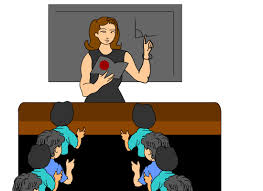The Pedagogy of Marketing.
A couple of years ago I worked with an education company. Travelling elementary, middle and high schools in the northeast, interviewing teachers, administrators and observing kids, I was amazed by how K12 education is changing. And, in many cases, not. The tools and pedagogy are there, we just have to use them.
What became most clear to me after my time in education was a simple observation about teaching and learning. The latter is the result of the former. But only if done well. You see, there is bad teaching but there is no bad learning. Understanding the linkage is important.
This observation powered an insight that changed my approach to branding and marketing. Most marketing is about teaching. While the best marketing is about learning. The old days of reach and frequency –smother consumers with repetition– akin to learning ABCs or months of the year, is not how we need to market in the 21st century. Not with the constant bombardment of media and messages. And messy messages at that.
With a rich “organizing principle for your product, experience and messaging” (a brand strategy), brought to life through learning moments and learning demonstrations, you can connect with and motivate consumers. Stand at the front of the class and recite benefits (teach) and you will fail. Peace.



